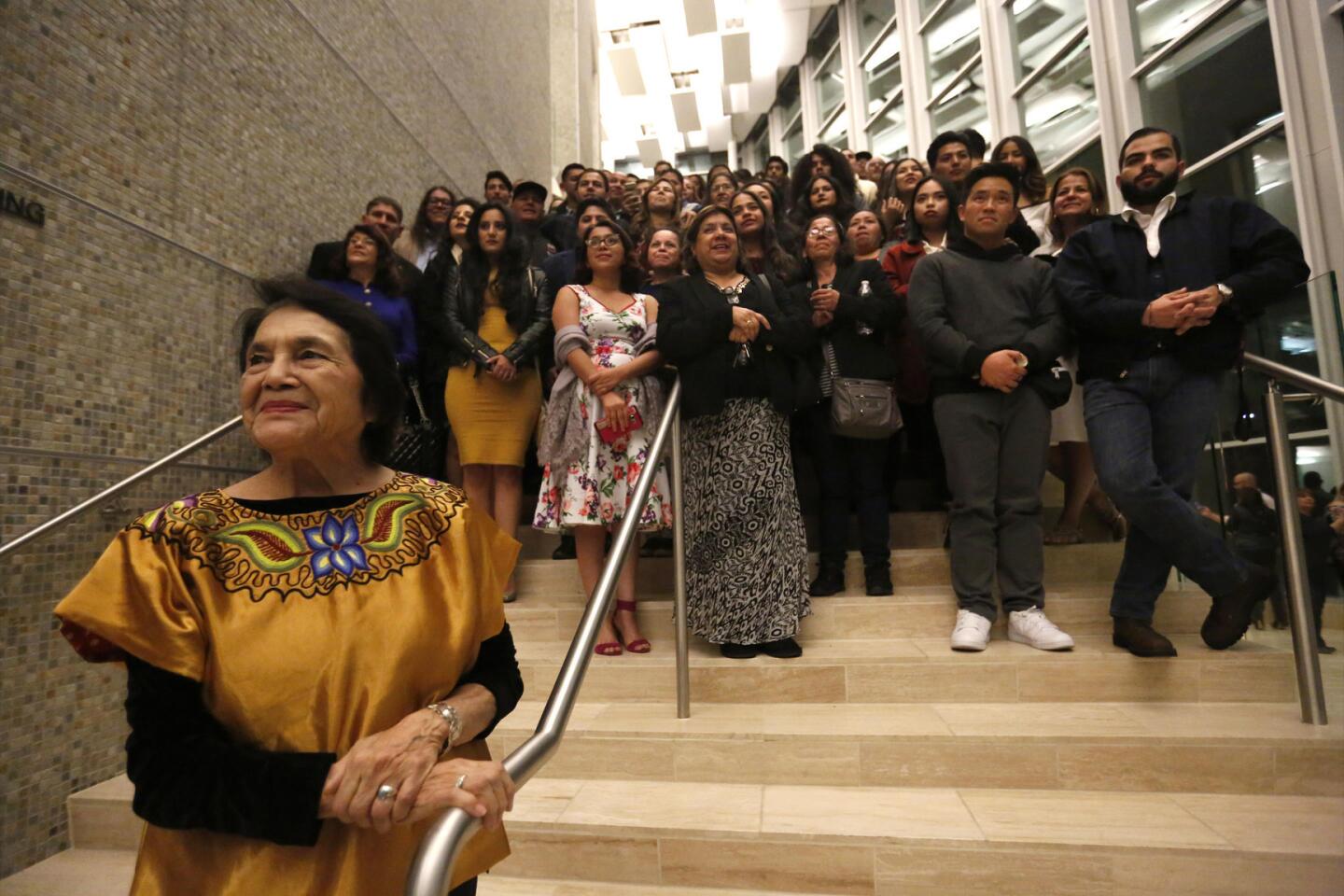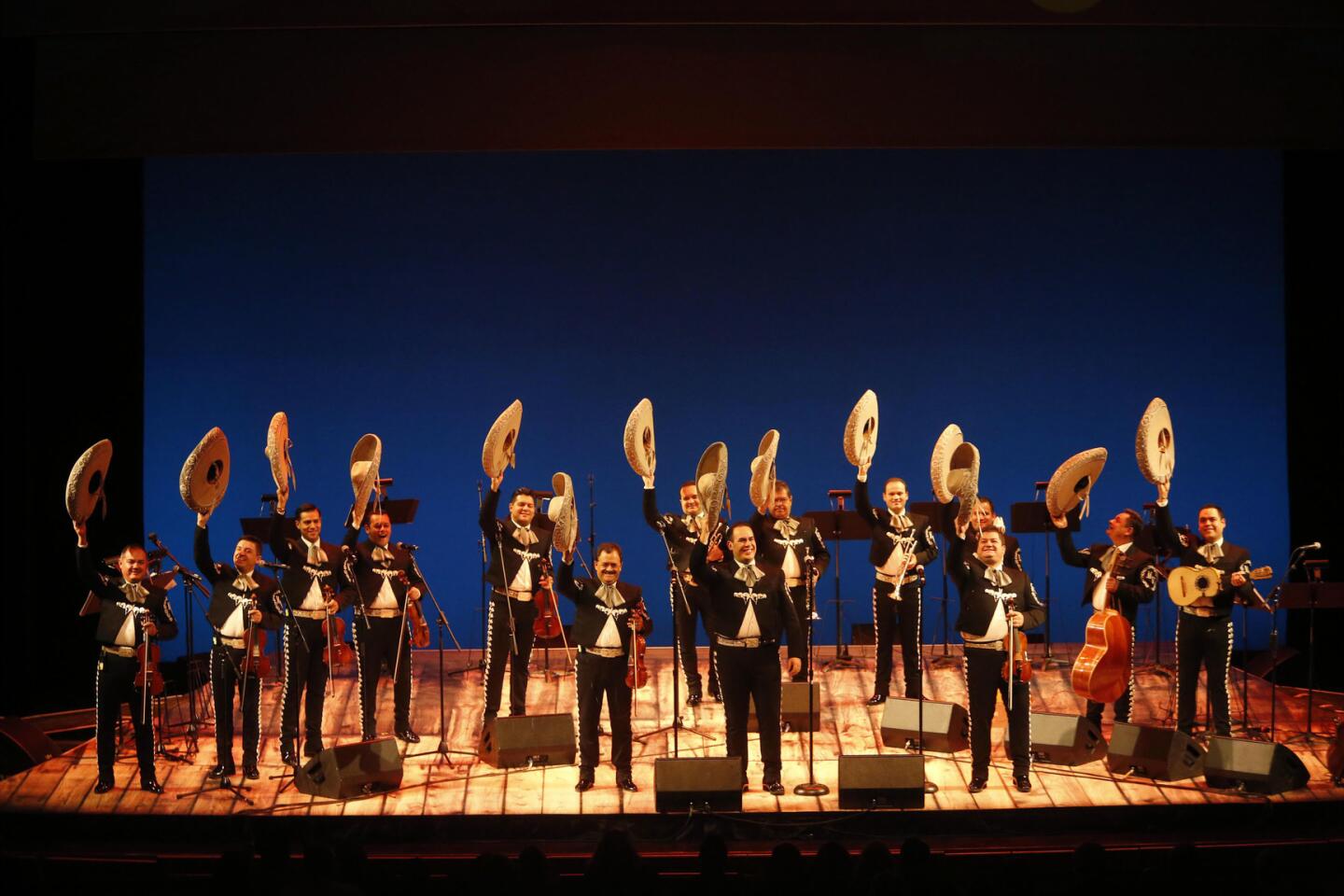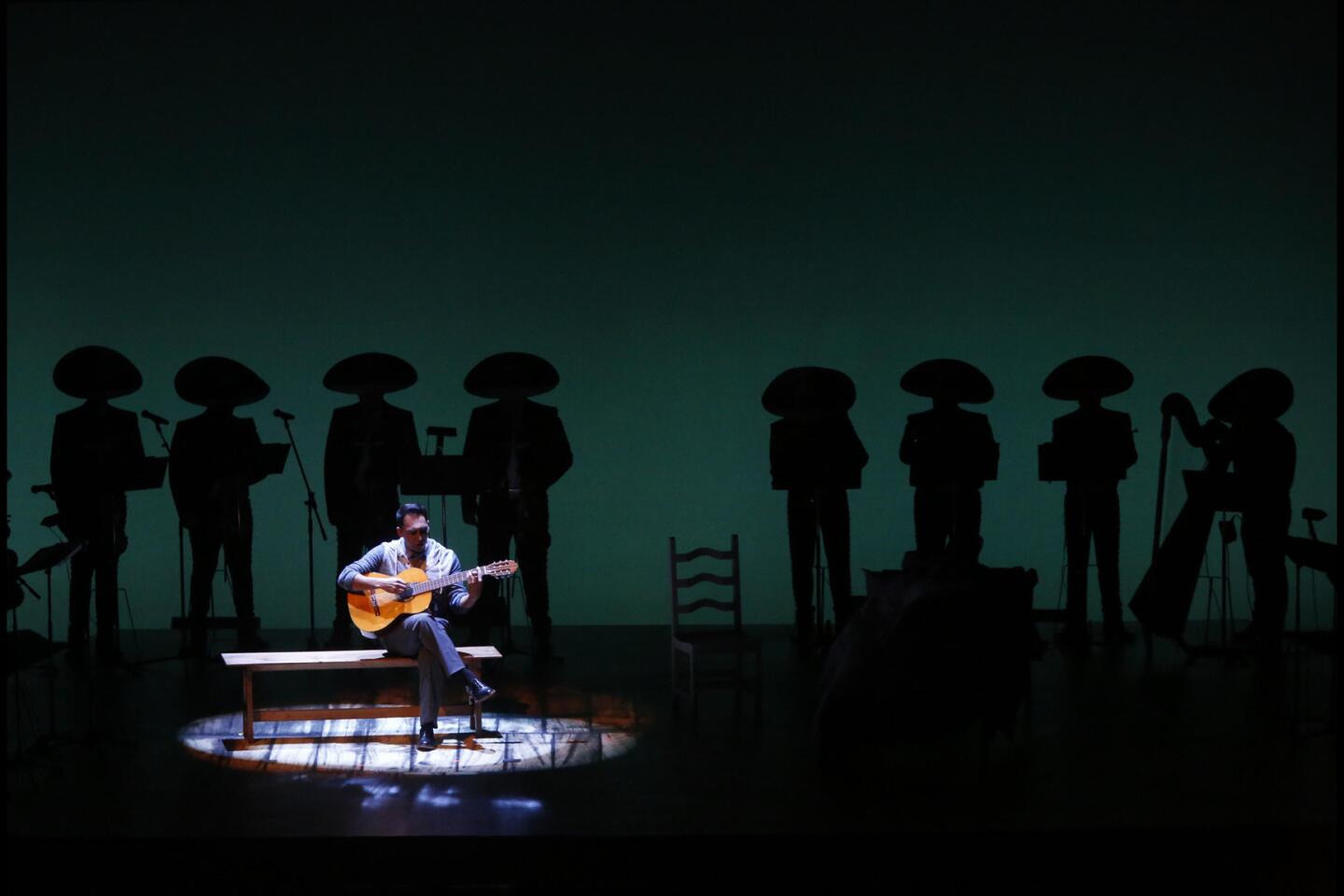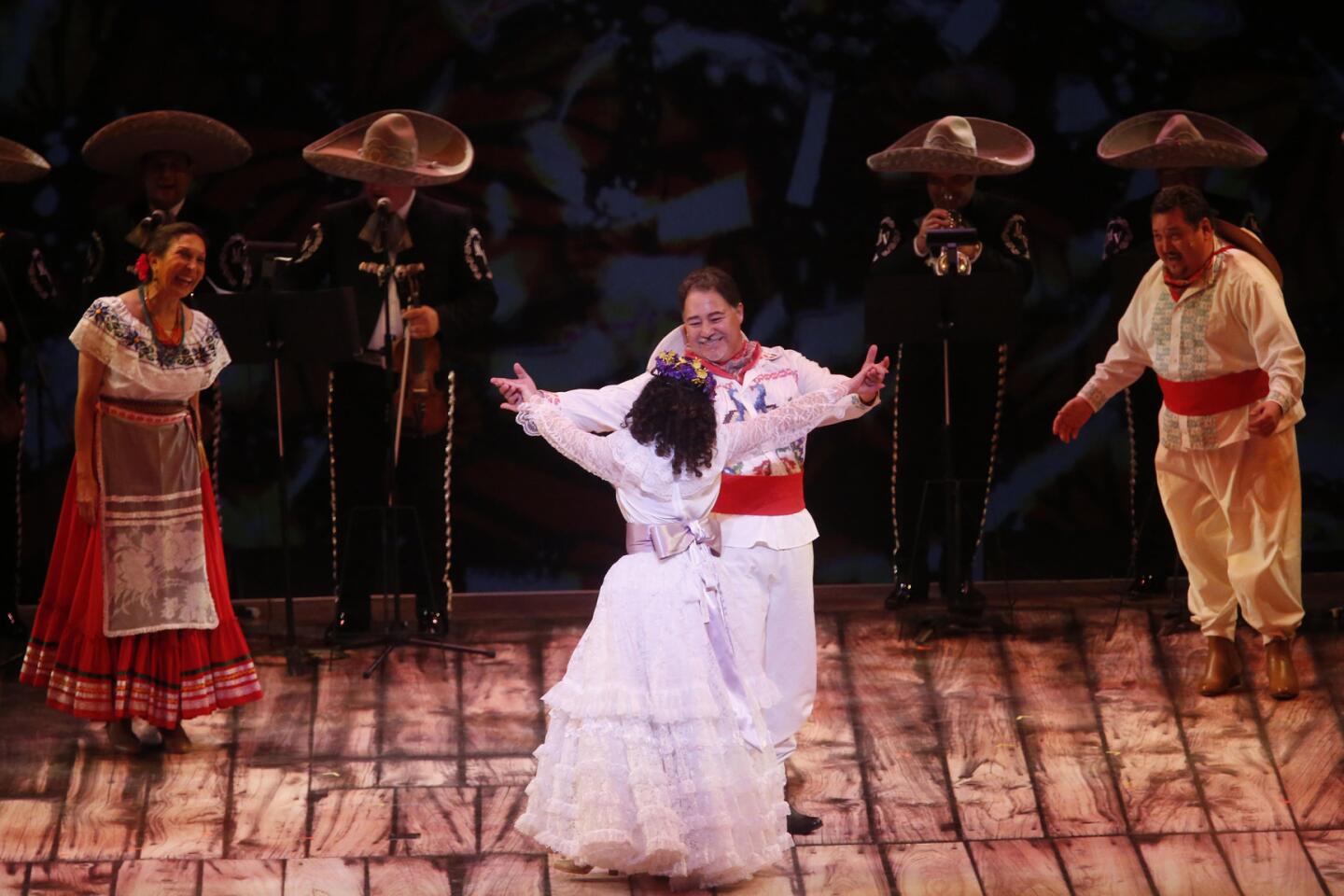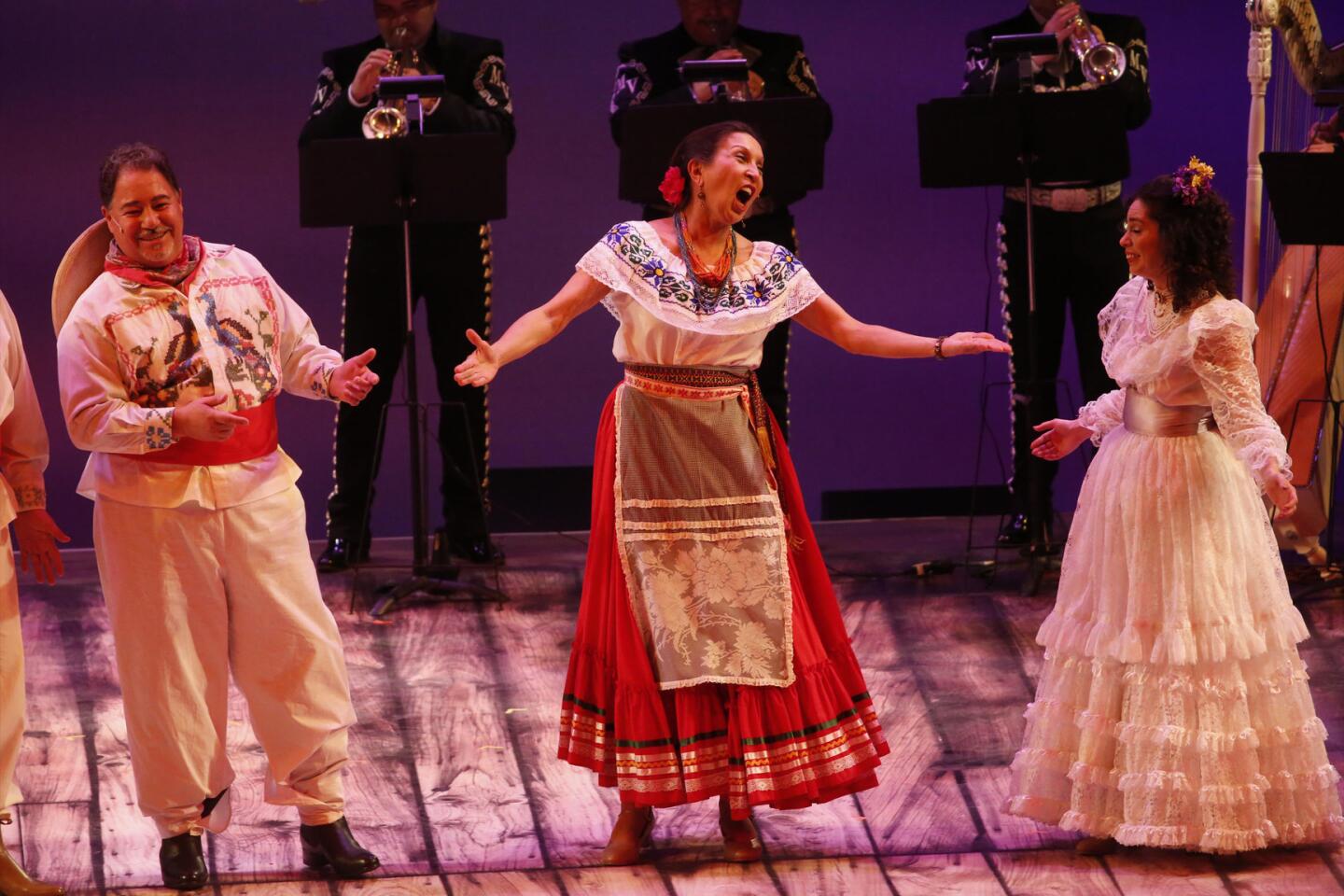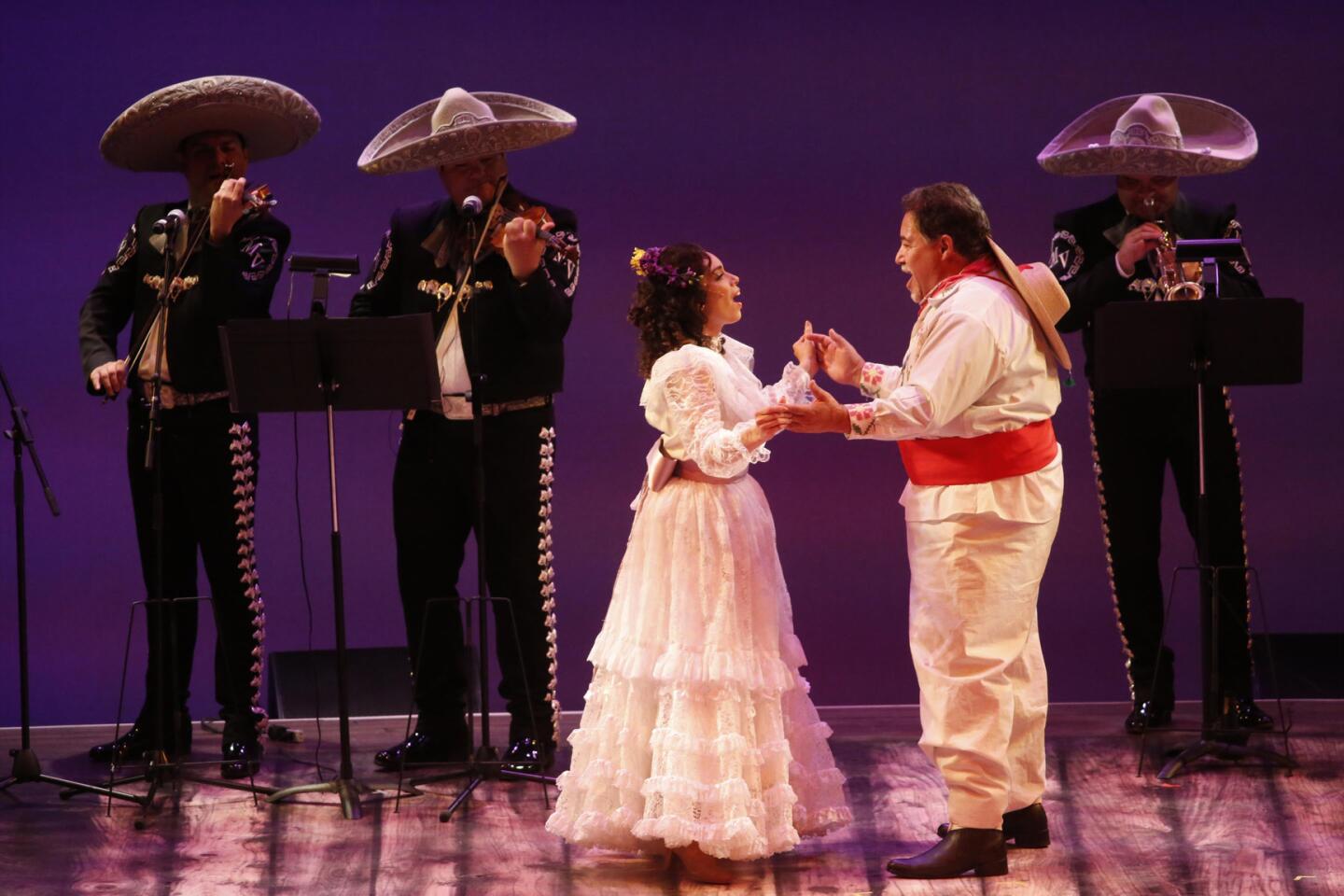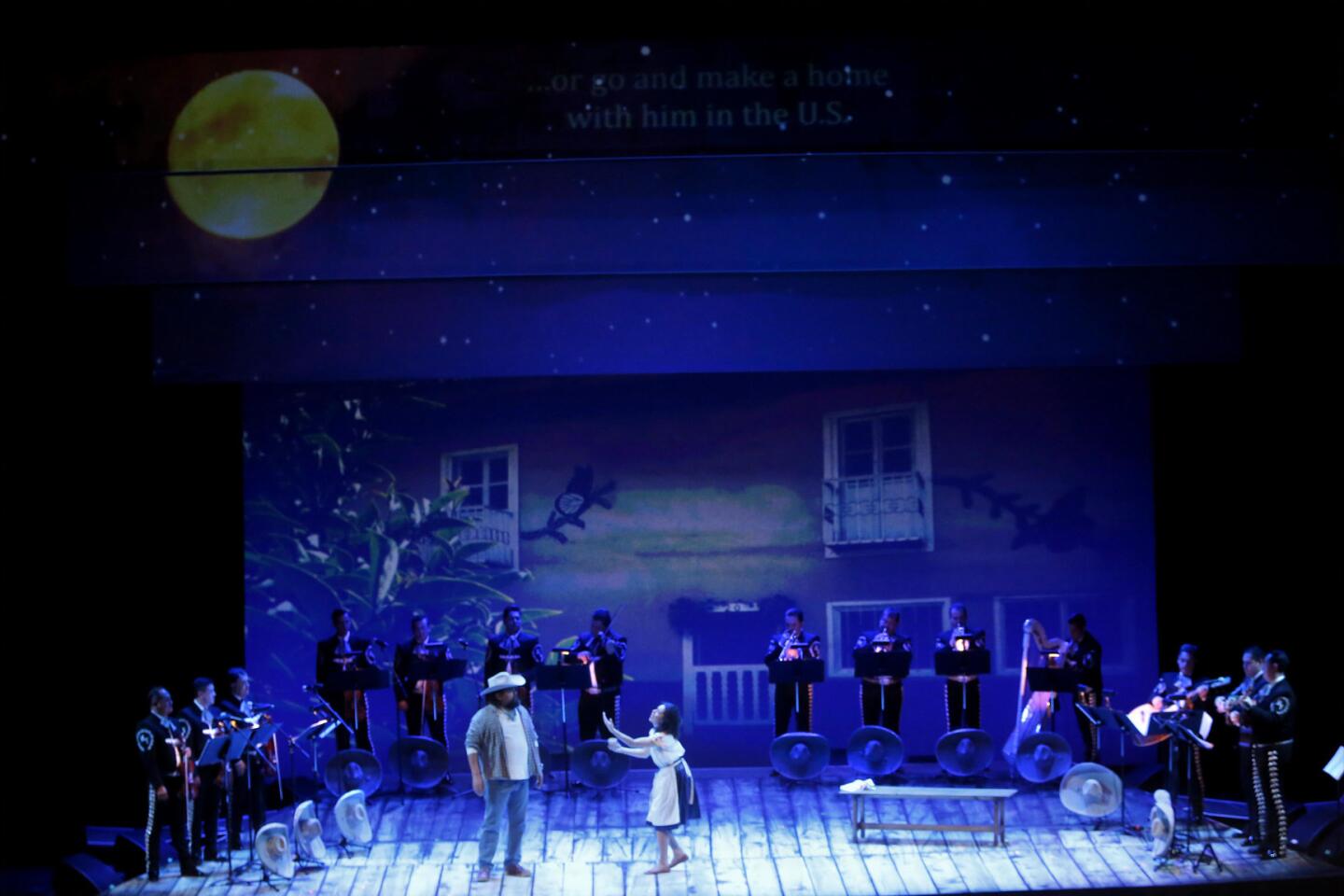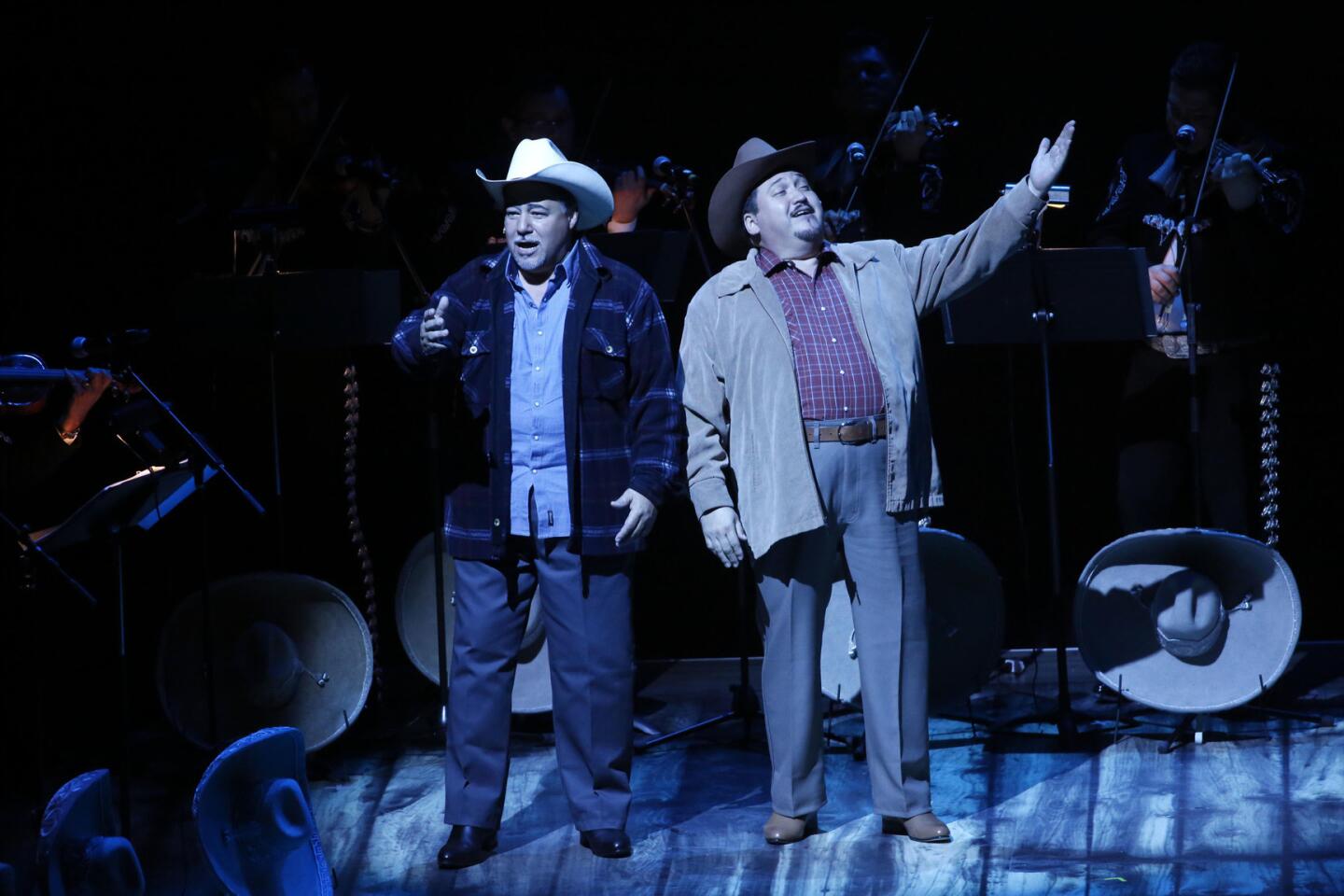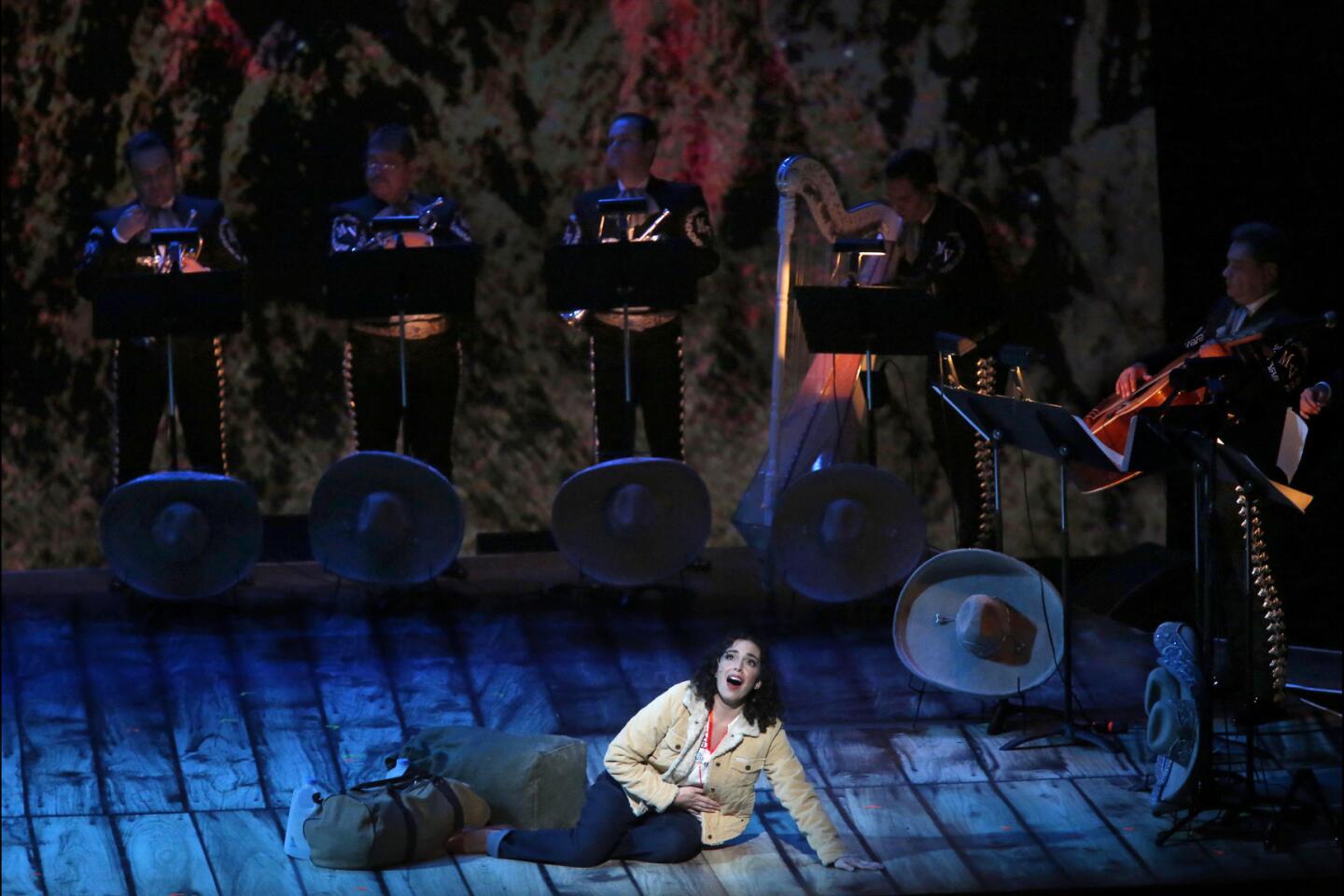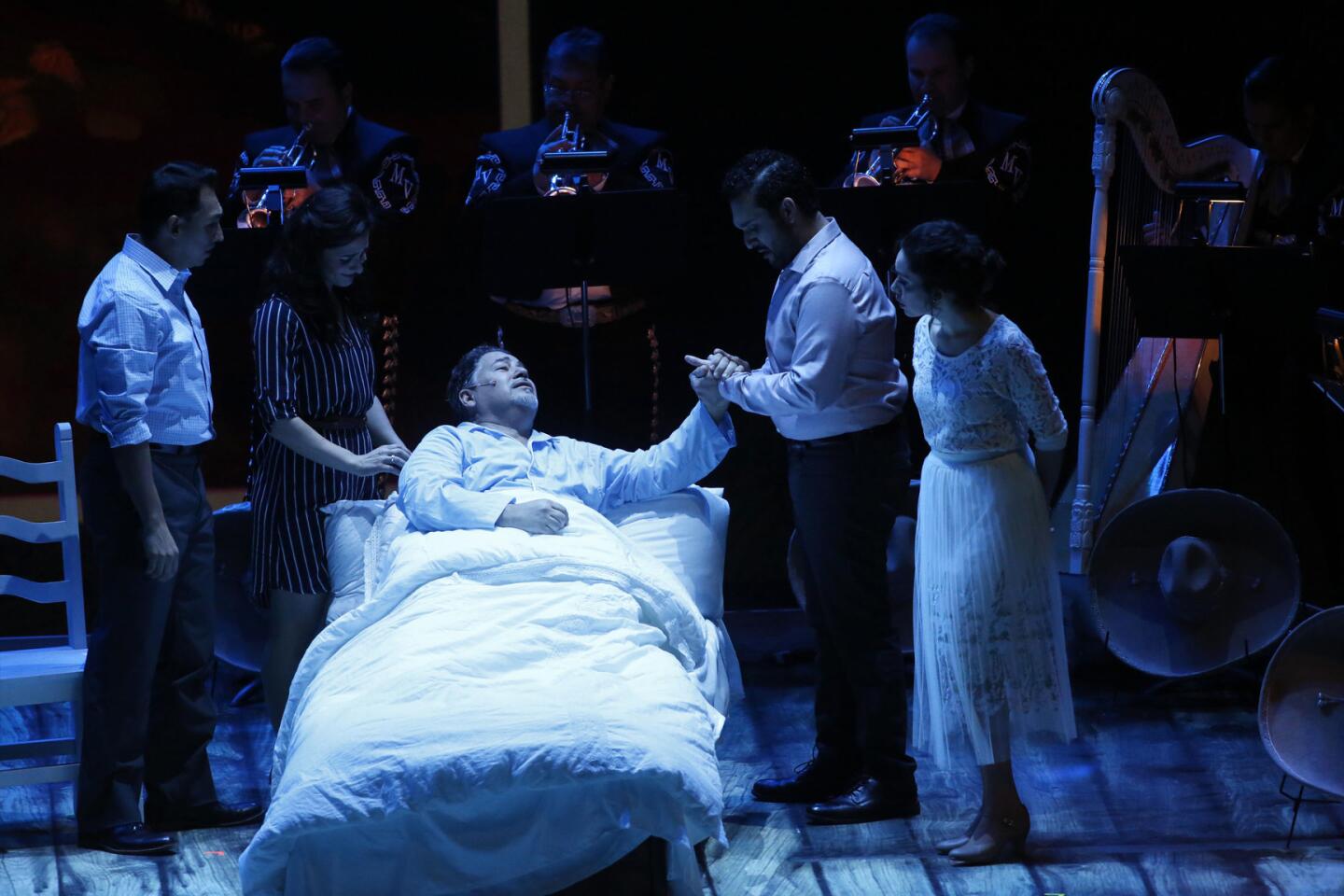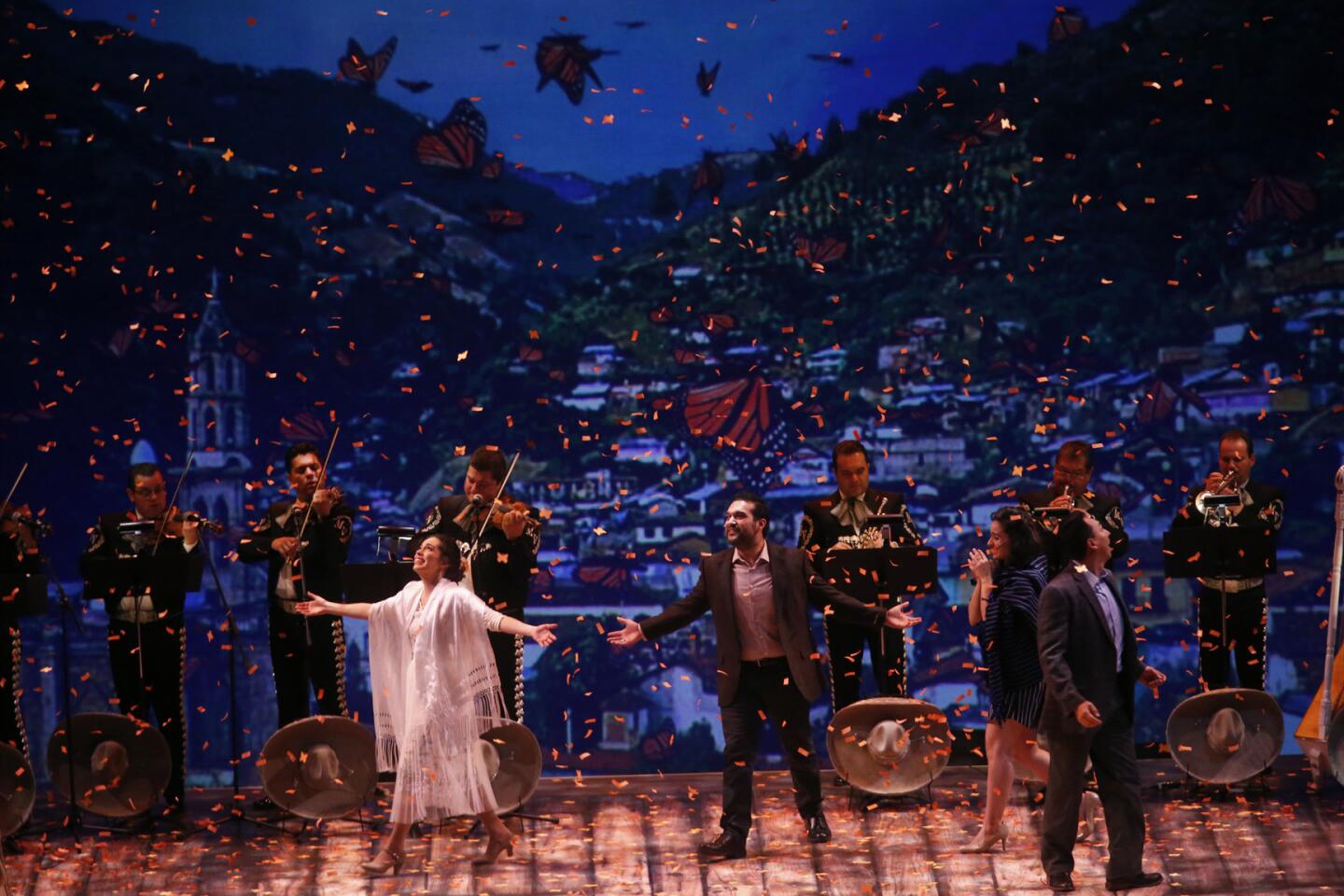Dreamers turn out for a mariachi opera whose story sings with familiar sorrow
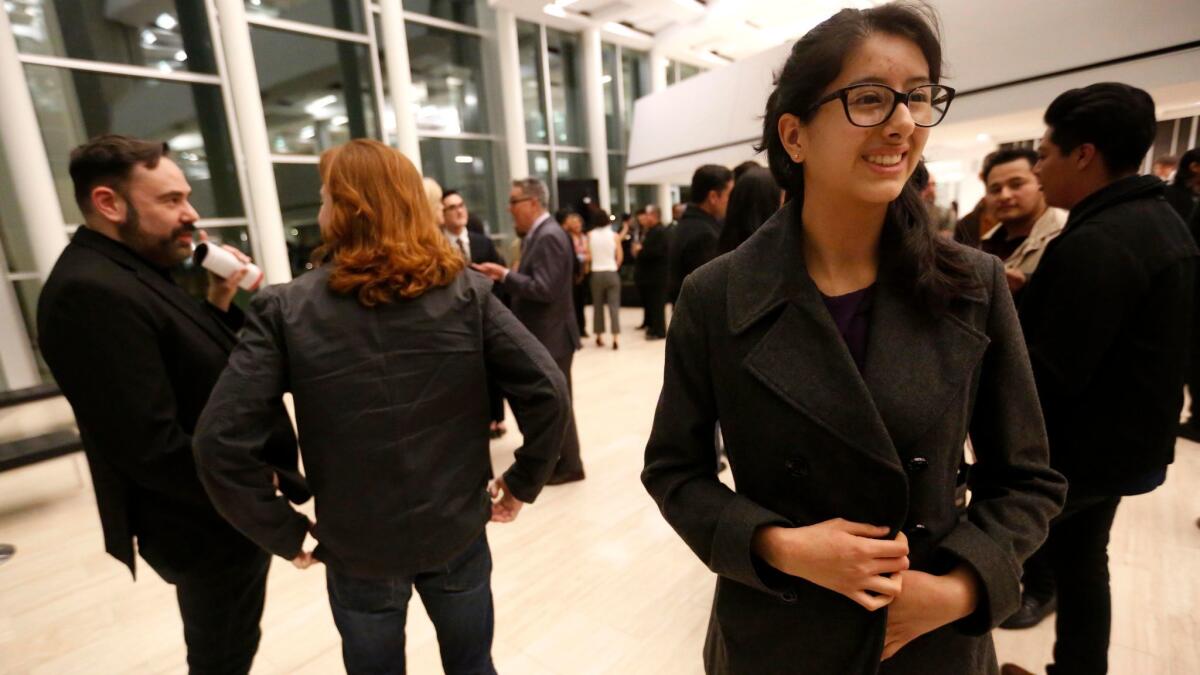
Jazmin Perez left her on-campus job at Cal State Northridge on Friday night and rushed to meet her mom and little brother. The destination: the Younes and Soraya Nazarian Center for the Performing Arts, where Perez and her family were attending a concert preceded by a reception in their honor.
“I didn’t have time to change,” the 18-year-old computer science major said apologetically, though she still looked chic in a belted coat and black-rimmed glasses.
Perez was one of 58 CSUN students — all Dreamers in the Deferred Action for Childhood Arrivals program — who were invited to bring their families to that night’s performance of “Cruzar la Cara de la Luna.”
The mariachi opera tells a heart-wrenching immigrant’s tale through the music of Mariachi Vargas de Tecalitlán, one of the most beloved mariachi ensembles. Composed by the group’s late music director, José “Pepe” Martínez, who died in 2016, the work was commissioned by Houston Grand Opera and premiered there in 2010.
For its California premiere, “Cruzar” got a fresh look — a new production with Dan Guerrero as director and Martínez’s son, José “Pepe” Martínez Jr., as music director.
On Friday night, the capacity crowd cheered as the Soraya’s executive director, Thor Steingraber, announced the evening’s special guests: labor leader and civil rights activist Dolores Huerta, the Dreamers and their families.
With Immigration and Customs Enforcement agents carrying out raids across Los Angeles this week and a congressional stalemate in Washington holding Dreamers in limbo, emotions were heightened as “Cruzar” unfolded a multigenerational tale of love, loss and familial bonds.
In a fluid mix of Spanish and English, four local singers, including mezzo-soprano Suzanna Guzmán, told the story of Laurentino, a man who left his wife and young son in Mexico to find work in the United States.
In the lobby after the performance, Dario Fernandez said the opera’s themes of home and belonging resonated with him.
“We have to make do with this reality that home is not here, it’s not there, it’s really where your loved ones are,” he said.
Fernandez is a doctoral student in educational leadership at Northridge, where he also works full time as the coordinator of the university’s EOP Dream Center, which describes itself as “a resource center for undocumented students and allies.” When it opened in 2016, Fernandez said, he estimated the number of undocumented students at Northridge totaled more than 1,400.
Fernandez, who came to the U.S. from Mexico when he was 2 years old, said Friday night’s program served as a reminder that Dreamers are “complete holistic human beings.” Although national politics often prompt conversations about real and valid fears, he said, it’s important to remember that “we can put pause on those emotions and explore our joy, our culture, and celebrate.”
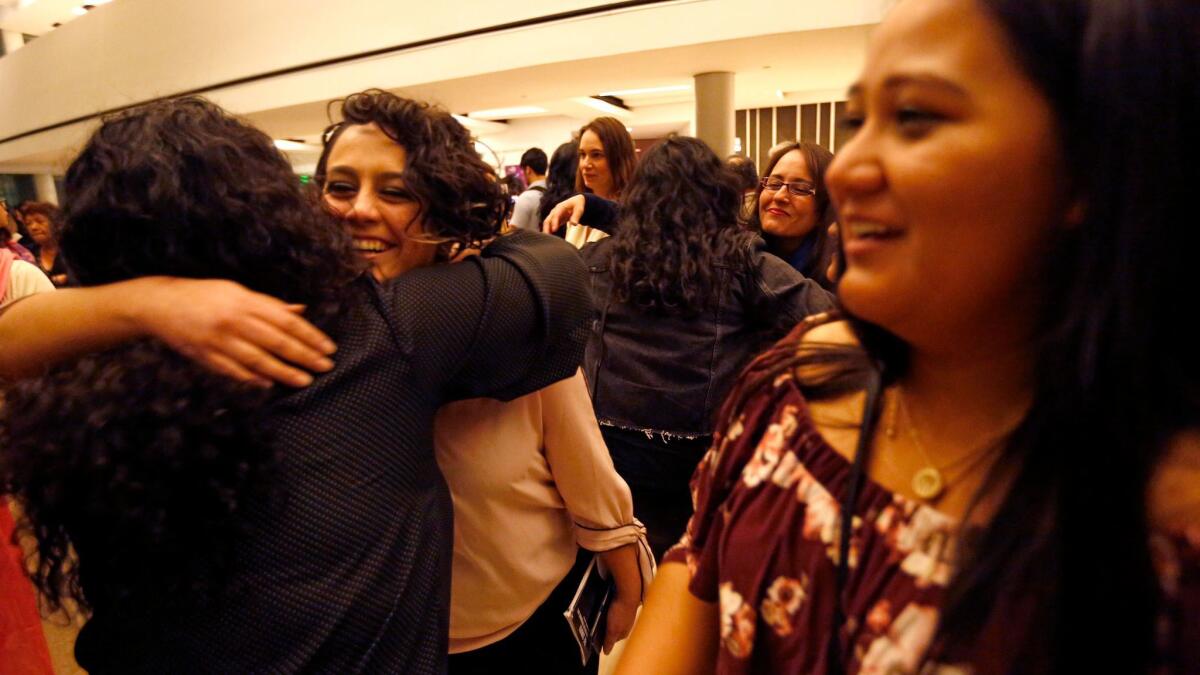
Perez was beaming after the performance, which she described as “absolutely beautiful.”
“It was so moving, and I believe that many of us can really connect with everything that has happened in it,” she said, standing near the Soraya’s grand staircase where she, her fellow Dreamers and their families had gathered for a photo with the show’s directors and Huerta.
“Just having her presence here was truly amazing,” Perez said, with Huerta a few feet away.
Perez was born in Puebla, Mexico, but grew up in Southern California and attended Granada Hills Charter High. She said she connected with Laurentino’s story — “leaving family behind and coming to this country for a better future for your children and for yourself.”
And, she said, it was particularly moving to watch the opera with her mother and her 13-year-old brother, who was born in the U.S.
“It was nice to know that he was experiencing a little piece of what we left behind,” she said.
Also in the crowd after the performance was Sarai Arrona, a 23-year-old Dreamer who came to the U.S. from Mexico at 13. She’s studying early childhood development.
Arrona brought her mother, Angelica Arrona, to the show. The two were locked arm in arm, squeezing each other as Angelica whispered to her daughter in Spanish and wiped tears from her cheeks.
“It brought back a lot of memories,” Arrona explained, speaking for herself and her mother. “It made us cry. That sums everything up.”
See all of our latest arts news and reviews at latimes.com/arts.
ALSO
A DACA story hits the stage, and the audience keeps on growing
300 years of immigrants’ stories in ‘New Colossus’
Culture Clash skewers immigration policy in wickedly wild ‘Sapo’
More to Read
The biggest entertainment stories
Get our big stories about Hollywood, film, television, music, arts, culture and more right in your inbox as soon as they publish.
You may occasionally receive promotional content from the Los Angeles Times.
